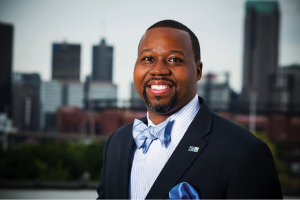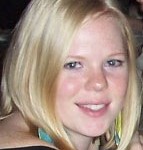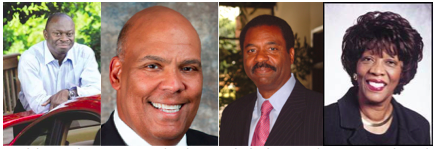Catching up with UMSL Business Alum, Orvin Kimbrough
by: Elizabeth Snowden,
MBA Candidate 2016
Orvin Kimbrough is a hot St. Louis success story. One of our own – whose passion and ambition forged a path from humble beginnings to President and CEO of the United Way of Greater St. Louis. Under Orvin’s leadership, the United Way of Greater St. Louis continues to positively impact the local community through individual and educational initiatives, and a network of partnerships.
 Orvin Kimbrough
Orvin Kimbrough
Last month for Black History Month, we reached out to Orvin to get to know him a little better, explore how his MBA from UMSL played a role in his business success, get a feeling for who inspires him, and gain some insight as to what black history means to this hometown leader.
(UMSL Business): Please give us a little background on where you are from, your family and your upbringing.
(Orvin Kimbrough): I was born in East St. Louis. I spent my formative years in North St. Louis. My wife and I have been married for nearly 17 years; we have two children and currently live in St. Louis County (Wildwood).
UB: Please tell us about your job and why it matters.
OK: I work for United Way of Greater St. Louis. I have worked for the organization since January of 2007, and I have been President and CEO since July of 2013. My job entails working with partners to create the conditions for people to live better lives. What this means is focusing on ensuring that we have a systematic and strategic approach to generating resources, managing resources and investing resources. My business matters because it is about helping people who have a philanthropic inclination [to] focus their efforts to help people who need support to realize their full potential.
UB: From which university did you receive your undergraduate degree, and what degree was it?
OK: I attended the University of Missouri — Columbia for undergraduate and my first graduate degree. I earned a Bachelor and Masters of Social Work. I earned a Master of Business Administration from University of Missouri — St. Louis, and I earned a Master of Arts in Theology from Aquinas Institute in St. Louis.
UB: How many people in your immediate family have attended college and how do you feel about that?
OK: Both my wife and I have earned advanced degrees and it’s an awesome thing…because we both grew up poor. We are one example of the power of education to change the course of life.
UB: What reasons made you decide to pursue an MBA at UMSL?
OK:
- I love public education. I am the product of public high school.
- The University of Missouri — St. Louis was value priced and had a reputation for quality. It was appropriately challenging and if I could make it through UMSL’s program, I could make it anywhere.
UB: What did you enjoy about your education at UMSL?
OK: Most people don’t know that I actually started my college experience at UMSL during the summer of 1994. I had to take a math and English class to qualify for admittance into Mizzou. That summer, I learned what it was like to be a college student. I spent a lot of time on campus studying with other students. Years later, going back to the university for graduate school was a treat. I enjoyed engaging with the other MBA students through team-based projects. You really got a real world feel for how you get things done in business.
UB: In what particular ways do you feel UMSL prepared you to be a successful businessman?
OK: The fact that I earned a Master of Business Administration from an accredited business school qualified me in an intensively competitive environment. The rigor of UMSL helped to shape me into a well rounded leader, who can think about strategy, management, leadership, people, results and finance in a measured way.
UB: What made you want to pursue your current industry, what do you like about your job, and of what personal career accomplishments are you particularly proud?
OK: I think my industry chose me. I had a challenged life growing up, and I think that narrative was partially to prepare me to lead in the nonprofit sector. I love that I get to see the best of people in my job — whether it is people who have a desire to help others, or people who are trying to change their lives by taking advantage of opportunities to improve.
I am probably most proud that my former boss, Gary Dollar, championed my potential, and that the board of United Way took a chance and offered me the top job in one of the most successful organizations on the planet when I was 38 years old. I am proud of the fact that I didn’t squander the opportunity, and I have been encouraged by my many mentors to stretch my leadership, and not be content with just getting by. I am super proud of how this region consistently responds when we are challenged…I am grateful that I get to champion the best of our region.
UB: Who were the people you looked up to growing up, and why did you admire/respect them?
OK: I admired the Program Director at the Monsanto YMCA, Mr. Robinson. The Monsanto Y is located in North St. Louis. Mr. Robinson at one point served as a supervisor at a group home in which I lived. He always encouraged us youngsters, and he allowed us to enter the Y free of charge.
I admired Mr. Trice who had a deadly three point shot – he too was a house parent at one of my residential facilities. I respected them both more than anything because they were real…and wanted the best for us kids.
I admired Louise Reeves and Lawson Calhoun – because they took a chance on me and helped me secure $600 that I needed to take remediation during the summer at UMSL. I admire all of the giants of the Civil Rights era, and the giants pushing for better educational conditions for our young people today.
UB: Who do you currently admire as a leader in the African American community and why?
OK: There are so many, I can’t do this justice. I admire Larry Thomas, Michael Holmes and Dave Steward because they look at the world through the lens of their faith and are focused on being excellent in everything they do. I admire Charmaine Chapman –because of her endurance and legend.
From left: Larry Thomas, Partner at Edward Jones; Michael Holmes, President at Rx Outreach; David Steward, Chairman and Co-Founder of World Wide Technology, Inc.; and Charmaine Chapman, former President and CEO of the United Way of Greater St. Louis.
I spend more time with Booker T and W.E.B. because I believe they each possessed some truth about what it would take for African Americans to be successful in America.
UB: Have you personally experienced any racial stereotypes during your career? How can African Americans and non-African Americans confront/eliminate these stereotypes?
OK: Yes, I believe that bias exists, but that is no excuse to stop pushing. I believe in the course of my life, I’ve experienced bias because of my age — meaning, people have discounted my contribution because I have generally been younger in all of my circles.
I also believe that it is harder to take instruction from an African American male because it is so uncommon that black men are in positions of leadership. I think the only way to confront it is to keep showing up and keep being excellent.
UB: What do you think when you hear “Black History Month,” and what does Black History Month mean to you, personally?
OK: Every day is black history for me.
UB: What advice can you offer African Americans in St. Louis or UMSL who want to pursue successful careers in business?
OK: Be passionate about helping people solve problems. If you are focused on solving problems you will never be unemployed.
Thank you so much for your time and contribution!!!


